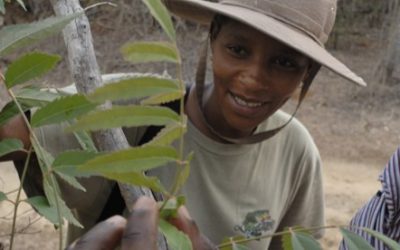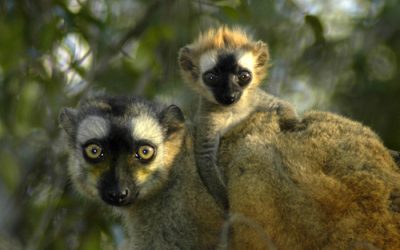These stunning Baobabs of Kirindy forest are just one aspect of the daily magic that awaits 18 young scientists for the next month as they discover the amazing biodiversity of this threatened ecosystem and learn essential skills that conservationists need to safeguard habitats throughout the tropics.
The lucky biological science graduates – representing 18 countries, 9 of them in Africa – are all participants on the 2016 TBA field course in Madagascar. What lies ahead is an unforgettable experience and a valuable launchpad for their careers in conservation.
They will start by exploring this dry deciduous forest habitat, finding out what plants and animals live there, and the relationships between them. Kirindy has many surprises in store…
Among the iconic animals and plants found nowhere else, the TBA participants will encounter the “mad” giant jumping rat; the fossa – Madagascar’s biggest carnivore; the unkindly named fat-tailed dwarf lemur (and several other diurnal and noctural lemurs); and the magnificent baobab trees which form part of the canopy in the Kirindy forest.
They will investigate how different species can survive in the seemingly inhospitable environment of this very dry seasonal habitat. They will meet with local communities to understand how social issues are a key element in conservation programmes. And they will learn how to design their own projects, carry out research and present their findings.
These are fundamental skills for scientists who want to become effective conservation leaders. Well designed projects lead to reliable research which increases the knowledge and understanding on which good policy and management decisions can be made.
The cultural diversity in the Kirindy group is a deliberate feature of TBA training, which aims to build a critical mass of conservation leaders in Africa and throughout the tropics. The multi-cultural mix is an important element that enriches training, through the sharing of wide-ranging experiences and ideas.
TBA runs its renowned field courses every year, so if you missed out in 2016, applications have just opened for 2017. Find out more here.



